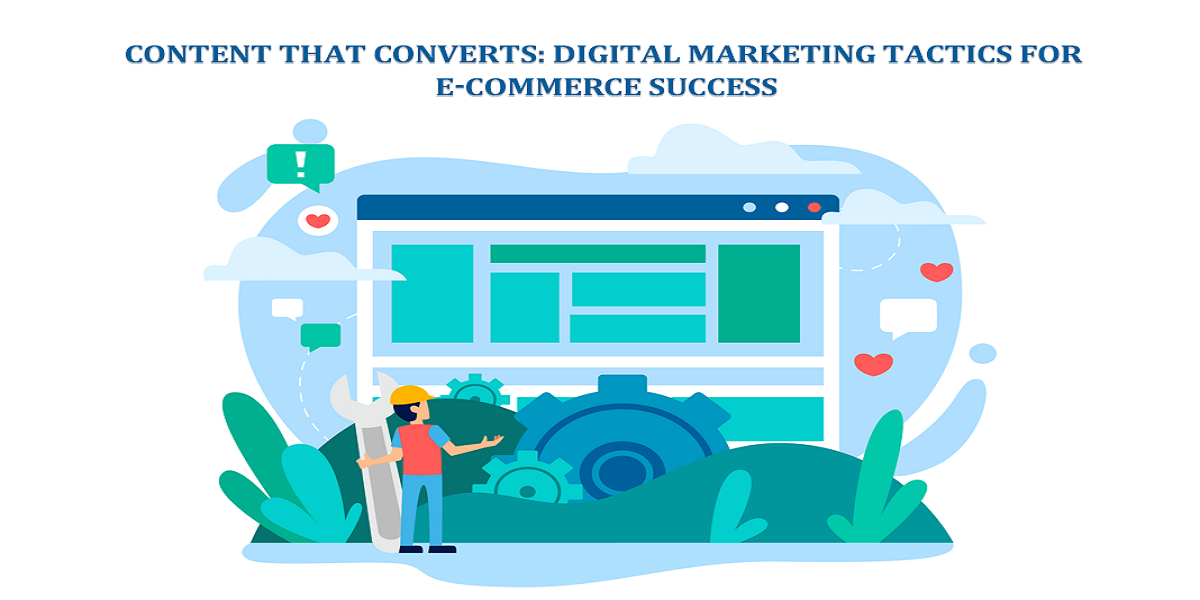
How Will 5G Change the Way We Build Mobile Apps?
- By James Tran
- 21-04-2023
- Mobile App Development
Welcome to the world of 5G, the next generation of mobile technology that is set to revolutionize the way we use and interact with our mobile devices. With faster speeds, lower latency, and increased capacity, 5G is expected to change the way we build and use mobile apps. Mobile apps have become an integral part of our daily lives, from social media to productivity tools, and the introduction of 5G technology is set to bring about a new era of innovation and possibilities. In this blog post, we'll explore the ways in which 5G will change the way we build mobile apps and the implications this will have on the mobile industry. So, buckle up and get ready for a journey into the exciting world of 5G and mobile app development. In this blog post, we'll explore the ways 5G will change the way we build mobile apps.
5G – The next-gen mobile technology
Mobile technology has come a long way in the last few years, from the introduction of 3G and 4G to the latest generation of mobile technology, 5G. 5G technology promises to bring faster speeds, lower latency, and increased capacity, which will have a significant impact on the mobile industry. In this blog post, we will explore the ways in which 5G will change the way we build mobile apps and how this will affect the mobile industry.
5G technology is expected to provide speeds up to 100 times faster than 4G, making it possible to download and upload large files in seconds. This speed and efficiency will transform the way we use our mobile devices, enabling us to do more in less time.
The impact of 5G on the mobile industry is expected to be significant. It will bring about a new era of innovation and possibilities, enabling the development of new technologies such as augmented reality, virtual reality, and autonomous vehicles. The increased network capacity and lower latency will allow for real-time interactions and seamless user experiences, which will be especially important for gaming and video streaming apps.
New Technologies
5G technology will enable new technologies that were not possible on 4G networks. For example, 5G will make it possible to use augmented reality (AR) and virtual reality (VR) technologies on mobile devices. This will create new opportunities for app developers to create innovative and immersive user experiences. In addition, 5G will also enable the development of new technologies such as autonomous vehicles and smart cities, which will require mobile apps to function.
Applications of 5G in Modern World
1. 5G Technology and its Role in the Development of Smart Cities
5G technology is set to revolutionize the way we live, work, and interact with our environment. One area where it will have a significant impact is in the development of smart cities. Smart cities use technology and data to improve the quality of life for their residents, optimize resource management, and reduce their environmental footprint. 5G technology will be a key enabler of smart cities, providing the high-speed connectivity and low latency needed to power the next generation of smart city applications and services.
One of the main benefits of 5G technology for smart cities is its ability to support a vast network of connected devices. This is essential for the development of smart city applications such as traffic management systems, public transportation networks, and energy management systems. These applications require a vast amount of data to be collected and processed in real-time, which is only possible with the high-speed connectivity and low latency of 5G technology.
Another benefit of 5G for smart cities is its ability to support advanced technologies such as AI and machine learning. These technologies can be used to analyze data collected from sensors and other devices in the city, allowing for real-time decision making and optimization of city services. For example, traffic management systems can use AI algorithms to predict traffic patterns and adjust traffic signals in real-time to reduce congestion and improve traffic flow.5G technology also has the potential to improve public safety in smart cities.
The development of smart cities using 5G technology is still in its early stages, but there are already several cities around the world that are embracing the potential of this technology. For example, in South Korea, the city of Seoul is working on a 5G-based transportation system that will use real-time data to optimize bus routes and reduce travel times for commuters. In the United Arab Emirates, the city of Dubai is using 5G technology to develop a range of smart city applications, including smart parking systems and autonomous vehicles.
2. Impact of 5G technology on autonomous cars
The emergence of autonomous cars has been one of the most exciting technological advancements in recent years. These vehicles have the potential to revolutionize the way we travel, reducing accidents, increasing mobility, and providing a more sustainable and efficient transportation system. However, the widespread adoption of autonomous cars depends on the availability of high-speed, reliable connectivity.
In addition to high-speed connectivity, 5G technology also offers low latency, which is the time it takes for data to travel between devices. Low latency is critical for autonomous cars as it enables real-time communication between vehicles and their surrounding environment. For example, if an autonomous car detects an obstacle in the road, it can quickly communicate this information to nearby vehicles, alerting them to the hazard and allowing them to adjust their speed and trajectory accordingly.
Despite the many benefits of 5G technology for autonomous cars, there are also some challenges that need to be addressed. One of the main challenges is the need for a reliable and secure communication network. Autonomous cars rely on real-time communication to operate safely, and any disruption to the network can have serious consequences. Additionally, there are concerns around the security of 5G networks, particularly with regards to cyber-attacks.
The impact of 5G on autonomous cars is significant, providing the high-speed, low latency connectivity required for these vehicles to operate safely and efficiently. As 5G networks continue to expand and improve, we can expect to see increased innovation and development in the field of autonomous cars, paving the way for a more sustainable and efficient transportation system.
3. How does 5G impact the entertainment industry?
The emergence of 5G technology has the potential to revolutionize the entertainment industry, providing faster speeds, lower latency, and higher bandwidth. With 5G, consumers can enjoy high-quality content on their mobile devices, streaming movies, TV shows, and music with minimal buffering and lag. Additionally, 5G enables new forms of entertainment, such as virtual and augmented reality experiences, that were previously not possible with 4G technology.
One of the primary benefits of 5G technology for entertainment is its high-speed connectivity. 5G networks can provide speeds up to 100 times faster than current 4G networks, enabling smoother and more efficient content streaming. This means consumers can enjoy high-definition video content without buffering or lag, providing a seamless and immersive viewing experience.
The impact of 5G technology on entertainment is significant, providing faster speeds, lower latency, and higher bandwidth for consumers to enjoy high-quality content on their mobile devices. As 5G networks continue to expand and improve, we can expect to see new forms of entertainment that were previously not possible with 4G technology, such as virtual and augmented reality experiences. However, it is important to address the challenges and concerns around 5G infrastructure and device adoption to ensure the widespread adoption of this technology in the entertainment industry.
Ways in Which 5G will Change the Mobile App Development Industry
1. Faster Speeds
One of the most significant benefits of 5G technology is the faster speeds it provides. The increased speeds are due to the use of higher frequency radio waves and the implementation of advanced antenna systems. The faster speeds will enable app developers to create more immersive and interactive user experiences, while also improving app performance and reducing load times.
There are several examples of apps that will benefit from faster speeds, including:
- Video Streaming Apps: With 5G, video streaming apps will be able to provide higher quality video and faster load times. This will enable users to watch their favourite shows and movies in high definition, without any lag or buffering.
- Gaming Apps: Gaming apps will also benefit from faster speeds, as they will be able to provide more immersive and interactive gameplay. Multiplayer games willbenefit from faster speeds, as players will be able to play in real-time without any lag.
- Augmented Reality Apps: Augmented reality apps will be able to provide more immersive experiences, as they will be able to overlay digital objects onto the real world in real-time. This will enable users to interact with digital objects in a more realistic and seamless way.
The faster speeds provided by 5G technology will have a significant impact on mobile app development. It will enable the creation of more advanced apps and technologies, while also improving app performance and reducing load times. This will lead to a new era of innovation and possibilities in the mobile industry.
2. Lower Latency
Another significant benefit of 5G technology is lower latency. Latency refers to the time it takes for data to travel from one device to another. With 5G, latency will be significantly reduced, enabling real-time interactions and seamless user experiences. This will have a significant impact on mobile app development in India, enabling the creation of new technologies and the improvement of existing ones.
The impact of lower latency on mobile app development will be significant. App developers will be able to create more interactive and immersive user experiences, which will transform the way we use our mobile devices. This will lead to the development of new technologies, such as augmented reality and virtual reality, and the improvement of existing technologies, such as video conferencing and gaming.
There are several examples of apps that will benefit from lower latency, including:
- Video Conferencing Apps: With lower latency, video conferencing apps will be able to provide more seamless and real-time interactions between users. This will enable remote workers to collaborate in real-time without any delays or disruptions.
- Gaming Apps: Gaming apps will also benefit from lower latency, as players will be able to play in real-time without any lag or delays. This will enable more immersive and interactive gameplay and improve the overall gaming experience.
- Augmented Reality Apps: Augmented reality apps will also benefit from lower latency, as users will be able to interact with digital objects in real-time, creating a more realistic and immersive experience.
3. Increased Capacity
Another key benefit of 5G technology is increased network capacity. With 5G, the number of devices that can be connected to the network at the same time will be significantly increased, enabling the creation of new technologies and the improvement of existing ones. This will have a significant impact on Android app development in India, enabling the creation of new applications and services that were not possible with previous network technologies.
The impact of increased network capacity on mobile app development will be significant. App developers will be able to create more complex and sophisticated applications and services, which will transform the way we use our mobile devices. This will lead to the development of new technologies, such as smart cities and the Internet of Things (IoT), and the improvement of existing technologies, such as mobile payments and mobile banking.
There are several examples of apps that will benefit from increased network capacity, including:
- IoT Apps: With increased network capacity, IoT apps will be able to connect to more devices and provide more advanced functionality. This will enable the creation of smart homes and smart cities, where devices can communicate with each other to provide seamless and automated experiences.
- Mobile Payment Apps: Mobile payment apps will also benefit from increased network capacity, as they will be able to process more transactions at the same time. This will enable faster and more convenient mobile payments, improving the overall user experience.
- Video Streaming Apps: Video streaming apps will also benefit from increased network capacity, as they will be able to provide higher quality video and more simultaneous streams. This will enable users to watch their favourite shows and movies on multiple devices at the same time, without any lag or buffering.
The increased network capacity provided by 5G technology will have a significant impact on mobile app development. It will enable the creation of new technologies and the improvement of existing ones, leading to more advanced and sophisticated applications and services.
4. New Technologies
5G technology will enable the creation of new technologies that were not possible with previous network technologies. These new technologies will have a significant impact on mobile app development, enabling the creation of new applications and services that were previously impossible.
One of the new technologies that will be enabled by 5G is the Internet of Things (IoT). With 5G, IoT devices will be able to communicate with each other in real-time, enabling the creation of smart homes and smart cities.
Another new technology that can be enabled by 5G is augmented reality (AR) and virtual reality (VR). With 5G, AR and VR applications will be able to provide a more immersive experience, with faster speeds and lower latency.
5G technology will also enable the development of new applications and services in the healthcare industry. With faster speeds, lower latency, and increased network capacity, healthcare professionals will be able to provide more advanced and sophisticated medical care remotely.
There are several examples of apps that will benefit from these new technologies, including:
- Smart Home Apps: With the enablement of IoT technology, smart home apps will be able to control and automate various aspects of a user's home, such as lighting, heating, and security. This will provide users with a more convenient and comfortable living experience.
- AR/VR Apps: With the enablement of AR and VR technology, educational and gaming apps will be able to provide a more immersive experience. This will enable users to learn and play in a more engaging and interactive way.
- Telemedicine Apps: With the enablement of advanced network technologies, telemedicine apps will be able to provide remote medical care, enabling doctors to diagnose and treat patients from a distance. This will improve the overall quality of healthcare and save lives.
5G technology will enable the creation of new technologies that will transform the way we live and work. These new technologies will have a significant impact on mobile app development, enabling the creation of new applications and services that were previously impossible.
5. Security Concerns
While 5G technology promises faster speeds, lower latency, and increased network capacity, it also comes with security concerns. These concerns revolve around the potential for hackers and cybercriminals to exploit the increased network capacity and new technologies enabled by 5G.
One of the main security concerns related to 5G is the potential for hackers to gain unauthorized access to sensitive data. With the increased network capacity of 5G, more devices will be connected to the network, which creates more potential entry points for cybercriminals to exploit.
The impact of these security concerns on mobile app development is significant. Developers will need to implement more advanced security measures to ensure the safety and security of their applications.
To mitigate these security concerns, there are several best practices that mobile app developers can follow. These include:
- Implementing end-to-end encryption to protect sensitive data transmitted over the network.
- Conducting regular security audits and updates to ensure that applications are up-to-date with the latest security measures.
- Implementing multi-factor authentication to ensure that only authorized users can access sensitive data.
- Implementing secure coding practices to prevent vulnerabilities that could be exploited by hackers.
Security Concerns with 5G
While 5G technology provides many benefits, it also poses security concerns. With more devices connected to a network, there is an increased risk of cyberattacks. App developers will need to be mindful of security risks and take steps to ensure that their apps are secure. This includes using encryption, multi-factor authentication, and other security measures to protect user data.
Wrap Up
By implementing best practices such as end-to-end encryption, regular security audits and updates, multi-factor authentication, and secure coding practices, developers can mitigate these security concerns and create safe and secure applications for users.
Looking ahead, the future implications of 5G on the mobile industry are vast. As more devices become connected to the network, and new technologies are enabled, we can expect to see continued innovation and disruption in the mobile app development in India space. It is important for developers to stay up-to-date with the latest trends and technologies to stay ahead of the curve and create the next generation of mobile applications.
Recent blog

How NASA Uses Web Design to Optimize User Experience in Space Control
Web Design | 03-05-2024
Content that Converts: Digital Marketing Tactics for E-Commerce Success
E-commerce | 02-05-2024.png)




